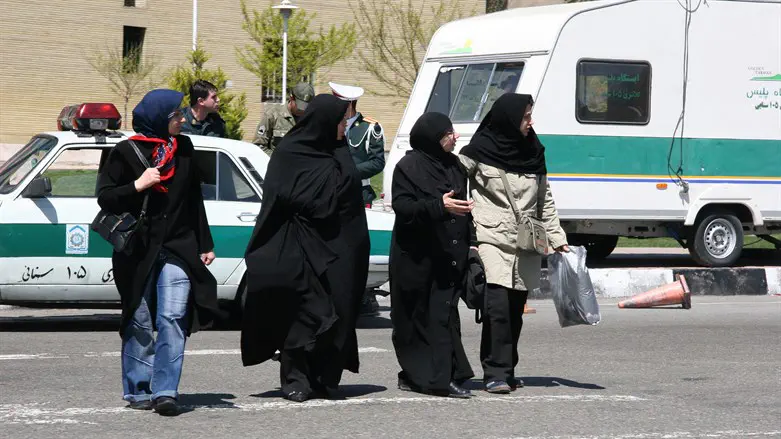
Throughout the history of the Islamic Republic of Iran, the violation of religious minority rights has been an inseparable part of the governing structure. Among these minorities, the Baha’i community has been specifically and systematically targeted with discrimination, violence, and repression. Hundreds of cases of arrest, torture, execution, and social exclusion have been recorded since the establishment of the Islamic Republic. Today, the name Roya Sabat emerges as a new symbol of this enduring injustice.
Roya Sabat, a Baha’i citizen residing in the United Arab Emirates, returned to Shiraz in January 2024 (Dey 1402 in the Iranian calendar) after 23 years abroad to care for her elderly, ailing parents. However, what was meant to be a humanitarian and family-oriented visit quickly turned into a harrowing nightmare. Upon arrival, she was arrested by the Islamic Revolutionary Guard Corps' intelligence forces and imprisoned. In a non-transparent and unfair judicial process, Branch 1 of the Shiraz Revolutionary Court sentenced Ms. Sabat to 25 years in prison, a two-year travel ban, and the denial of her civil rights.
The charges brought against her included "collaboration with the State of Israel," "forming a group against national security," and "propaganda against Islamic law" — allegations based not on clear evidence, but solely on her religious beliefs and Baha’i background. Ms. Sabat is neither a political activist nor a security threat; she is a woman concerned only for her family, whose only "crime" is adherence to a non-recognized faith in the Islamic Republic.
Roya Sabat's case is not just a legal matter; it is a mirror reflecting the deeply discriminatory and ideologically driven nature of Iran's judiciary when it comes to Baha’is. Her arrest and harsh sentencing represent an unprecedented level of repression, particularly targeting Baha’i women — who suffer doubly at the intersection of religious and gender-based discrimination.
In Iran, Baha’is are denied access to higher education, employment in government institutions, property ownership, and even dignified burial in official cemeteries. Moreover, numerous human rights reports have documented the rising tide of persecution against this group. Roya Sabat has now become the voice of this silent suffering — the voice of women who are not only distanced from the regime's official religion but are further exposed to violence because they are women.
Since 1979, thousands of Baha’is in Iran have been detained and interrogated. Tens of thousands have been denied education and employment. Their properties have been confiscated or destroyed, and their holy sites and cemeteries have been attacked. In his 2016 report, then-UN Secretary-General Ban Ki-moon described the Baha’i community as “the most persecuted religious minority in Iran.” Today, with her 25-year sentence, Roya Sabat stands as a living embodiment of this long-standing oppression.
Despite the extensive human rights violations faced by Baha’is, international reactions remain limited, cautious, and largely ineffective. Western governments too often prioritize economic interests and political agreements with Tehran over the defense of fundamental human rights. The global silence surrounding Roya Sabat's case raises a deeply moral and human question: How much longer will the world remain silent in the face of the suffering of voiceless minorities?
Roya Sabat’s ordeal is no longer an isolated case — she is a symbol of a state-sanctioned policy of repression and injustice that has cast a shadow over the Baha’i community for more than four decades. Her arrest and sentencing must serve as a serious wake-up call for the global conscience. In a world that claims to defend human dignity, no one should be subjected to such cruelty simply for their beliefs.
It is now the responsibility of international institutions, human rights organizations, media outlets, and awakened consciences to unite in demanding Roya Sabat’s release and an end to the systematic persecution of Baha’is in Iran. Only through solidarity, transparency, and global pressure can we hope that the voice of justice will not be extinguished — even in the darkest corners of the world.